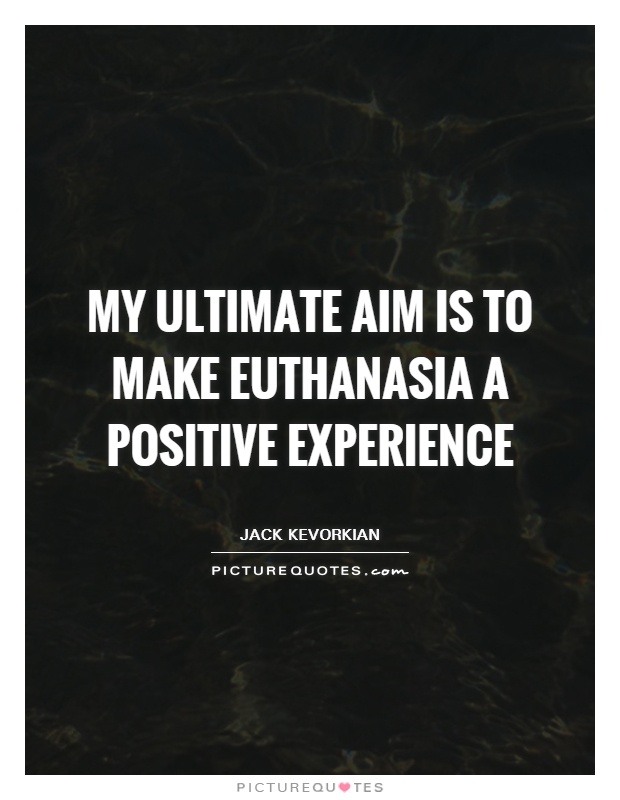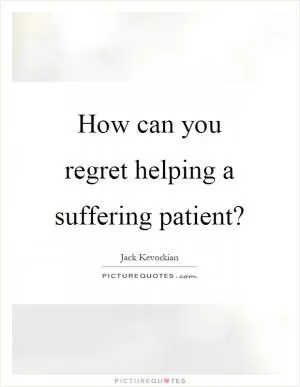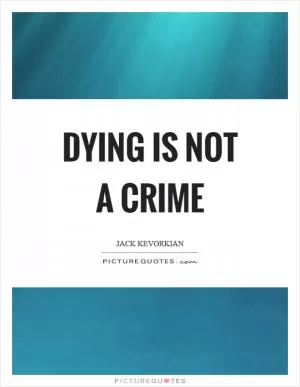My ultimate aim is to make euthanasia a positive experience

My ultimate aim is to make euthanasia a positive experience
Jack Kevorkian, also known as "Dr. Death," was a controversial figure in the field of euthanasia. He gained notoriety for his advocacy of physician-assisted suicide and his willingness to help terminally ill patients end their lives. Kevorkian believed that euthanasia could be a positive experience for those suffering from unbearable pain and terminal illnesses, and he dedicated his life to fighting for the right of individuals to choose when and how they die.Kevorkian's ultimate aim was to make euthanasia a positive experience for those who were suffering. He believed that allowing terminally ill patients to end their lives on their own terms was a compassionate and humane act. Kevorkian saw euthanasia as a way to alleviate the suffering of those who were in pain and had no hope of recovery. He believed that individuals should have the right to die with dignity and without unnecessary suffering.
Throughout his career, Kevorkian assisted in the deaths of over 130 patients, many of whom were suffering from terminal illnesses such as cancer and ALS. He believed that by providing a peaceful and painless death to those who were suffering, he was helping them to end their lives on their own terms. Kevorkian's actions sparked a national debate on the ethics of euthanasia and physician-assisted suicide, with some praising him as a hero for his compassion and others condemning him as a dangerous advocate for death.
Despite facing legal challenges and criticism from the medical community, Kevorkian remained steadfast in his belief that euthanasia could be a positive experience for those who were suffering. He believed that by providing a compassionate and dignified end to the lives of terminally ill patients, he was helping them to find peace and relief from their pain. Kevorkian's ultimate aim was to make euthanasia a positive experience for those who were suffering, and he dedicated his life to fighting for the right of individuals to choose when and how they die.












 Friendship Quotes
Friendship Quotes Love Quotes
Love Quotes Life Quotes
Life Quotes Funny Quotes
Funny Quotes Motivational Quotes
Motivational Quotes Inspirational Quotes
Inspirational Quotes